At a time when Ukrainian media are facing an existential challenge due to war, economic instability, and shrinking sources of income, competition for donor support is becoming a chance for survival and development. At the same time, disputes continue around them: do all participants really have equal conditions? Is this support available to new players, or only to “proven” parties?
The problem becomes especially acute in times of war, when many regional publications find themselves in a critical situation. Falling circulation volumes, loss of advertisers, and general economic instability compel media to seek alternative sources of funding. In such a situation, grant support becomes not just desirable, but vital for the survival of many newsrooms.
Experience as a key selection factor
Practice shows that successful media outlets do have certain advantages in competitions, but these are due to objective factors.

“In addition to an interesting and competent application, the donor will always take into account your history,” explains the project coordinator of the National Union of Journalists of Ukraine (NUJU), Iryna Khromenko. “If you have already participated in some competitions and shown that you really successfully implement projects, that you always have a decent result in them, that you clearly adhere to all deadlines and reports, then next time, it will be a ‘plus’ for your applications to the criteria set by the donor.”
This logic is quite understandable from a risk management perspective. Grantors are responsible for the effective use of funds. They are naturally inclined to support those who have already proven their ability to implement projects qualitatively.
“International donors want us to come to them with a solution, not a problem,” emphasizes NUJU Secretary Vitalii Holubev. He warns against turning grant support into “an artificial continuation of the life of structures that are already dead, in fact.”
“Of course, there is a factor of trust. Suppose a media outlet has already had experience in receiving grants and has proven itself well. In that case, there are no complaints about it; it does everything according to the project, reports clearly, and so, I think, it will have no problems,” confirms Tetiana Kaushan, the editor of the Putyvlski Vidomosti newspaper from the Sumy Region.
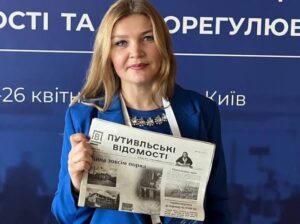
At the same time, this does not mean that new organizations have no chance of success. Vira Iliyina, a deputy editor-in-chief of the Technopolis newspaper from Kramatorsk, is convinced that the selection process in most donor organizations is objective. “I believe that the selection process is usually carried out honestly and correctly,” she says. “How can the person who applies have any influence? Winning depends on how you are prepared for the competition. In all the time I have been participating in projects, I have never encountered dishonesty.”
Tetiana Kaushan‘s experience confirms the possibility of gradually entering the “grant system”: “We have won a number of Ukrainian subgrants. At first, it was difficult. I think our applications were not as perfect as we would have liked: we started writing them in 2023 and had no prior experience writing grant projects. Despite this, we received several small grants at first, then a larger one.”
Real challenges for the media
A detailed analysis of the experiences of media organizations reveals that the primary issues lie not in the realm of bias, but in resource constraints and the quality of application preparation. Small newsrooms, in particular, face the problem of multitasking. When one employee performs the functions of journalist, editor, layout designer, and SMM manager, the time for thorough preparation of grant applications becomes very limited.
Tetiana Kaushan describes the situation of many regional media as follows: “Our newsroom is small, and we simply do not have enough time to prepare a thorough project. Now, the typesetter is on vacation, and I typeset the newspaper, write, manage social networks, and update the website… This is such a load that simply does not allow us to pay much attention to filling out the ground applications.”
Andrii Rusyniak, the General Director of the Ivano-Frankivsk RAI TV and radio company, also emphasizes personnel problems.

“Many newsrooms may not have enough people in their team to do all this, because there is some ongoing work,” he says. “This creates a vicious circle: to receive grants, resources are needed to prepare high-quality applications, but these resources are precisely what the media that need support the most lack.”
Often, a serious obstacle to accessing international funding is the language barrier. Regional media often lack the opportunity to attract professional translators or employees with a high level of proficiency in foreign languages.
Iryna Khromenko emphasizes the importance of the “technical” training of the project drafter.
“You should always read the terms and conditions of these grant competitions in detail first,” she says. “If you don’t follow these criteria and conditions, your application may be rejected for formal reasons.”
Many media outlets underestimate the importance of design techniques, which automatically excludes them from consideration even if they have an interesting idea.
Some of the media executives we interviewed noted that donors are now more inclined to satisfy turnout from front-line areas, so in order to win, representatives of rear areas should prepare their projects as carefully as possible.
“Frankly speaking, the situation is very difficult. But if you carefully prepare the project and then carefully report on its implementation, it helps,” says Andrii Rusyniak. “Yes, we won and implemented a project organized by the Institute for Regional Media and Information (IRMI, Ukraine) together with the Swiss Fondation Hirondelle, with the assistance of the NUJU. Thanks to this project, we were able to purchase equipment and improve our technical condition. Unfortunately, there are few such offers now.”
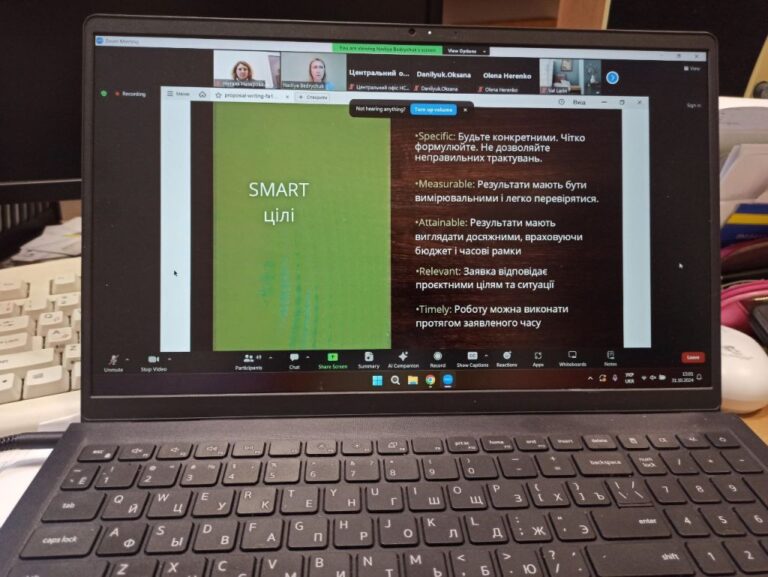
Motivation and professional approach
A separate problem is the motivation for submitting applications and understanding the goals of grantors.
“How did you fill out that application form? What is your motivation? What resources do you have for the implementation of that project? Suppose the media outlet is 100% certain that it has the necessary expertise but lacks resources. In that case, this very confidence impresses the people who make the final decisions,” says Vira Iliyina.
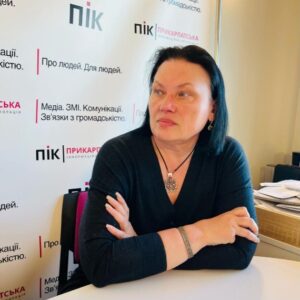
Instead, some send carelessly prepared applications to donors –to confirm their belief in the donor’s “bias.”
“When a person writes that their motivation for applying was the desire to ‘check whether the donor would choose them, knowing our difficult situation,’ this is not the motivation that the organizers of the competition will take into account,” says Iryna Khromenko. “Donors are looking for media outlets that strive to develop, not just survive or ‘test’ the system. The media outlet must see a development plan in front of them. Nobody wants to give money just for someone’s survival today.”
Those who really want to survive should request funds not for food, but for development. This radically changes the approach to seeking help. Instead of asking for “rescue,” specific projects with clear results need to be presented.
Iryna Khromenko gives a specific example of ineffective interaction: “There are several newsrooms that are always offended. At the beginning of the war in 2022, the Union assisted one of them. It involved it in a content project (a project to create materials on a specific topic – Ed.). Still, the media proved itself to be unprofessional. Suppose we want the media to create materials. In that case, we focus on professionalism, so that these are high-quality materials, and not at the level of a wall newspaper.”
“Each media outlet should still have its plan, in particular, for economic sustainability and digital transformation,” NUJU Secretary Vitalii Holubev is convinced. “The question is not that we have to succeed in everything, but that we simply have to do something.”
An important requirement for applications is a measurable results app.
“The most important thing is to show the organizer of the competition what the final result will be. The expected result, which must be measurable. It is not simply that “we will strengthen our media and give our audience truthful information.” There must be specific results listed in quantitative indicators,” explains the NUJU expert.
Ways to overcome barriers and systemic challenges
Despite the challenges, successful examples prove that a breakthrough is possible.
“If the project is well written, if the expected results are spelled out in it, the idea, problem, and goal with which it is implemented are well spelled out, then there is no problem in competing with other media,” says Vira Iliyina.
“You need to try, try to write for all competitions,” advises Iryna Khromenko. “The more applications you write, the better you polish them. Any experience is positive. Even rejections become valuable experience for improving future applications. When you write a grant application for the first time, you are always afraid. You worry about writing something wrong, especially when you are drawing up a budget. But you need to gain such experience.”
Tetiana Kaushan also emphasizes the importance of consistency: “As colleagues say, if you have made 10 applications and at least two of them ‘played’ for you, it is a miracle. That is, you need to write a lot to win a lot,” she says.
This requires strategic planning and constant work on improving grant-writing skills.
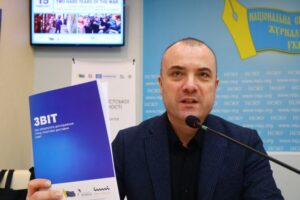
“When I started to address certain people specifically, to show my daily work, people began to support me, because they saw my daily work, that I live by it,” Vitalii Holubev shares his own experience. “When you broadcast a person’s interest in your work, you want to support them.”
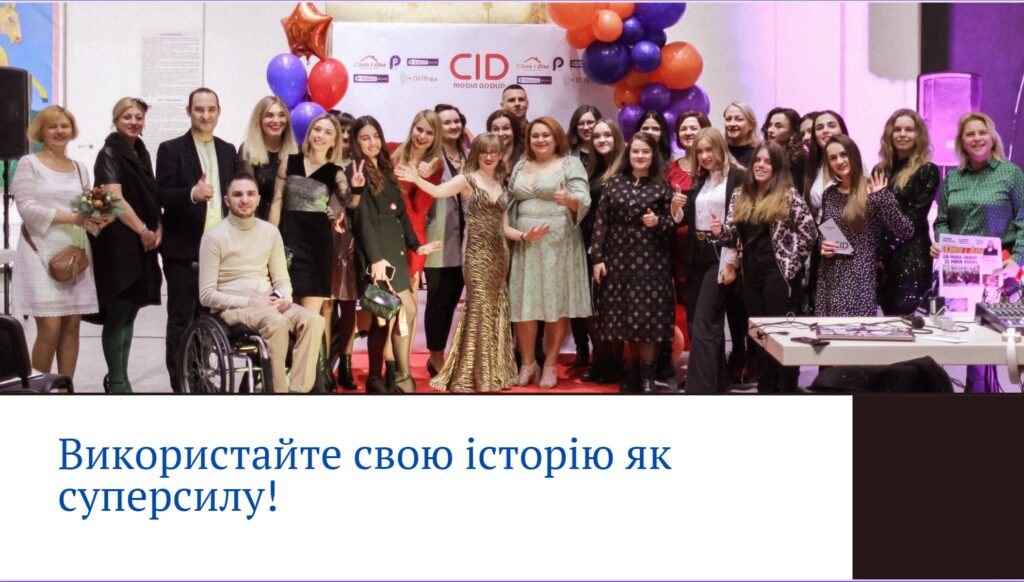
Grant competitions for media are indeed highly competitive, but this reflects limited resources and high-quality standards, not bias in the system. Successful organizations achieve results through a professional approach, systematic work, and the ability to clearly present their projects. Key success factors include a careful study of donor requirements, the formulation of measurable goals, and a demonstration of professionalism and readiness for long-term, systematic work. The Ukrainian media space needs diverse voices, and donors understand this; however, they also require guarantees of the effective use of funds and the achievement of declared results.
Partnership between the NUJU and Ukrainian Media Fund: Supporting Sustainability and development of local media
Since 2022, the NUJU, in cooperation with the Ukrainian Media Fund, has been implementing a comprehensive program to support independent local media. Its goal is to strengthen editorial capacity, strengthen ties with communities, and ensure financial and technical sustainability of media operating in wartime conditions.

The program is based on an open, competitive selection process and recommendations from the UMF to support independent, impartial, and transparent media that demonstrate editorial quality, relevance to local communities, innovation, and a commitment to long-term sustainability.
In 2022–2024:
- more than 100 newsrooms were supported;
- 1,120 materials created with a total reach of over 10 million;
- 70% of newsrooms reported audience growth;
- more than 150 salary payments were provided;
- technical support was provided (equipment, backup power, licenses);
- supported were media in front-line regions, with a focus on inclusion, IDPs, the fight against corruption, security, and reconstruction.
The project demonstrates how systemic support enables local media not only to survive but also to become a driver of change in their communities, from addressing social problems to strengthening civic engagement.
This material was prepared at the initiative of the NUJU within the framework of the Ukrainian Media Fund Project, which supports independent local media in Ukraine.
Maksym Stepanov
NUJU Information Service

 THE NATIONAL UNION OF
JOURNALISTS OF UKRAINE
THE NATIONAL UNION OF
JOURNALISTS OF UKRAINE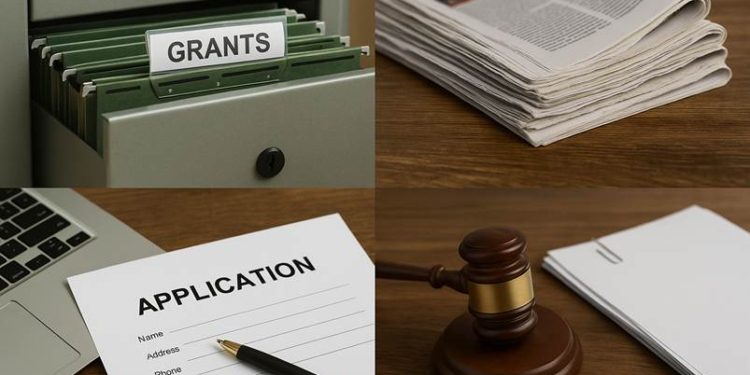
















Discussion about this post